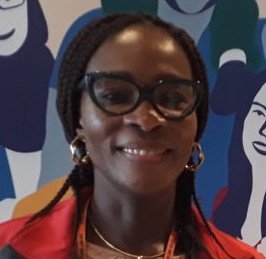
The Buist Pathway to Leadership Award gave me the opportunity to fill a gap that I had aspired to fill in the last few years.
I had recognized the need for a robust, comprehensive and structured training in leadership to enable me fulfill my current roles and meet my future aspirations and objectives of fostering respiratory medicine practice in Nigeria through leadership in capacity building, mentorship, research and advocacy. This award me gave me the impetus and financial leverage to begin my training for a Master’s Degree in Global Health at the Liverpool School of Tropical Medicine (LSTM) in August 2019.
As the first recipient of the award, I desired to utilize it in a tangible, distinctive and career modifying venture that would leave a lasting legacy. The award coincided with the introduction of the first distance learning Master’s in Global Health program at LSTM in 2019, which was a perfect fit for me. It allowed me remain in my current positions at my institution and also maintain my roles outside my institution, including those at PATS and PATS MECOR. Remaining in my positions gave me the opportunity to implement the skills as I acquired them which I consider integral to achieving high impact from this award.
The Msc program is specifically structured to raise global health leaders and equip them with requisite leadership thinking and skills. In addition to gaining enhanced understanding of the underpinnings of global health and global health research, I have become better at reflexivity, decision making, strategic planning, communication, consensus building, inspirational leadership and politics which I have already brought to bear with increased confidence. It spurred me to take on an opportunity that I may not have previously considered, a new leadership role as Chief editor of the PATS journal, the African Journal of Respiratory Medicine. I recognized it provided a platform that contributes to fulfilling my vision for the advancement of respiratory practice in Africa through research. My vision for the journal is to make it a leading voice in African respiratory research within the next 2-3 years by working collaboratively with members of the team to meet the prerequisites for indexing in reputable databases. At my hospital, I have modified my leadership style and approach, becoming more inspirational and attracting new trainee fellows within the last year following a three-year lull. I have also learnt to engage more productively with administrators at my institution that has led to improvement in service delivery. The COVID-19 pandemic brought a heightened need for leadership in health care delivery and through strategic planning, exemplary leadership and effective communication, we have sustained care for our non-COVID-19 patients.
Working in a lower middle-income country such as Nigeria, I am keenly aware of the weak health systems in which we practice. My vision is to use the skills that I have acquired to first develop and implement approaches that improve service delivery through research, advocacy and training of upcoming healthcare workers. Secondly, my vision is to engage effectively with stakeholders at all levels (nationally and internationally) and compel them to transform available evidence into policy; recognizing that while we as scientists develop evidence, it is only implemented by the policy makers who are often politicians. Furthermore, in contrast to my previous disposition towards being apolitical, I now aspire and I am ready to take on higher leadership positions particularly in health system administration within my country as well as globally. As a female global health leader, I had inspired, supported and personally mentored upcoming colleagues. Going forward, my vision is to further motivate them to seek personal development at all stages in their career, to embolden them to acquire the needed political skills and to pursue leadership positions which may be more challenging to achieve in our patriarchal society.
I am thankful for the Buist Pathway to Leadership Award and I attest that it has contributed to making me a more effective leader. Although my program at LSTM is not yet over, this award has enabled me achieve some of my goals within the last one year and I anticipate that it will be further enhanced at completion. It has helped me take on new opportunities and I have begun to seek new frontiers.
We thank Professor Sonia Buist for funding the award that supported this work. We would also like to thank the Pan African Thoracic Society (PATS) and the NIHR Global Health Research Unit on Lung Health and TB in Africa at LSTM – “IMPALA” (grant number 16/136/35) for their support in coordinating the award. In relation to IMPALA specifically: IMPALA was commissioned by the National Institute of Health Research using Official Development Assistance (ODA) funding. The views expressed in this publication are those of the author(s) and not necessarily those of the NHS, the National Institute for Health Research or the Department of Health and Social Care.
Obianuju Ozoh, 2019 recipient


